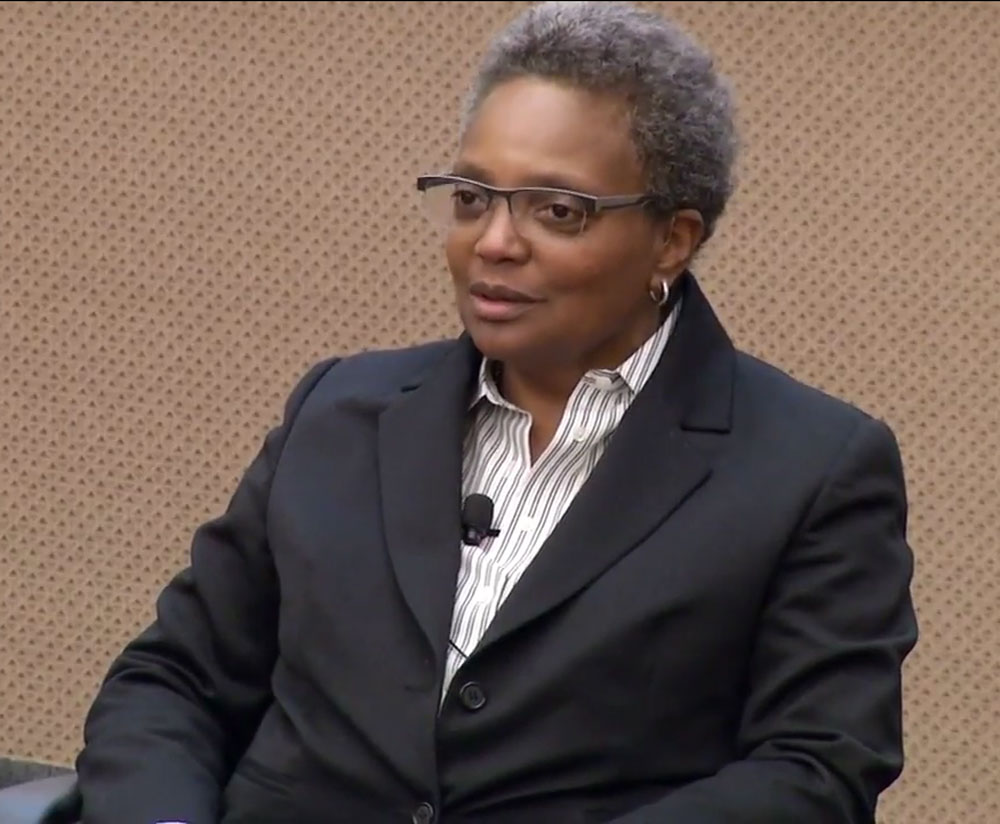
August 31, 2020; Block Club Chicago
When calls to defund the police began to proliferate a few months ago, NPQ suggested that the timing might be opportune, since many localities would be facing massive deficits as a result of the pandemic.
So, it is not that surprising that Chicago mayor Lori Lightfoot seems to be ever more openly welcoming of defunding proposals. She announced on Monday that the city was headed for an historic revenue gap of $1.2 billion this fiscal year, after suffering an $800 million loss in the 2020 fiscal year which ended June 30. The losses are being attributed to the pandemic.
Lightfoot anticipates being able to fill some of that gap with $350 million in CARES Act money and $200 million from debt refinancing, but she hopes, along with many other mayors, that the federal government in the end will kick in some dollars, though she is busy making plans for the worst case scenario—and that means layoffs.
Lightfoot agrees an “important discussion” was there to be had around the funding for public safety even as she re-expressed fears that layoffs would mean the eradication of some of the diversity built up in recent years. She pointed to overtime, and the constant stream of lawsuits that come as results of police misconduct, both of which carry hefty price tags in Chicago. Payments related to such lawsuits now cost around $52 million a year. Overtime in the first six months of 2020 ran $84.3 million.
Depending on how this goal is pursued, such a tack, taken on boldly and surgically, might result also in lower police personnel costs. But there is a very powerful union to be dealt with—the Fraternal Order of Police, the same one that wrote a missive to President Trump in July encouraging him to deploy federal troops into the city. The letter, signed by John Catanzaro, read in part, “Mayor Lightfoot has proved to be a complete failure who is either unwilling or unable to maintain law and order here. I would be willing to sit down anytime and discuss ideas about how we can bring civility back to the streets of Chicago. These politicians are failing the good men and women of this city and the police department.”
Sign up for our free newsletters
Subscribe to NPQ's newsletters to have our top stories delivered directly to your inbox.
By signing up, you agree to our privacy policy and terms of use, and to receive messages from NPQ and our partners.
So, although many lawmakers may agree with defunding proposals, it appears the law enforcers do not, and they, like other police associations, appear to have the backing of the president.
Still, at least at this point, Lightfoot is not warning about cuts to social services.
“What I’m hearing, and I think is 100 percent right, is we are speaking our values in the wrong ways,” Lightfoot says. “We are funding the police and not funding things in the community. We are not funding jobs, schools, mental health, affordable housing and all of those things.”
But Lightfoot warns that such commitments require all city residents to be politically engaged.
The reality is, it’s not one for one. It’s not me for me and the heck with the rest of you. We have to be in this together as a city. That’s how we do our work. That’s how we plan our budgets. And we need to make sure we’re taking care of each other as neighbors.
Block Club Chicago reports that “Residents will be asked to share feedback on the budget before it’s proposed this fall in a variety of ways. There will be town halls streamed on Facebook, and there’s an online budget survey that asks residents about which city services they most value. The city is also holding a series of round tables where they’ll try to hear from residents about how the city should prioritize its spending. Organizers particularly want to engage with young [Latinx] and Black Chicagoans, according to the mayor’s office.”—Ruth McCambridge













